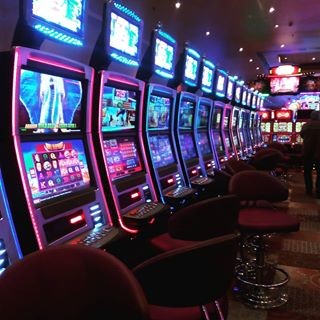 Of course, the odds of winning on a slot machine depend on the probability of aligning a winning combination of symbols. That probability depends, to some extent, on the total number of reels and the total number of symbols on each reel. However, that is not the whole story; the reels of a slot machine are ‘weighted’, such that low-paying symbols and blanks occur more frequently than high-paying symbols. To make matters worse, each reel is weighted differently, such that high-paying symbols are even less likely to occur on reels two, three and so on than they are on reel one.
Of course, the odds of winning on a slot machine depend on the probability of aligning a winning combination of symbols. That probability depends, to some extent, on the total number of reels and the total number of symbols on each reel. However, that is not the whole story; the reels of a slot machine are ‘weighted’, such that low-paying symbols and blanks occur more frequently than high-paying symbols. To make matters worse, each reel is weighted differently, such that high-paying symbols are even less likely to occur on reels two, three and so on than they are on reel one.
The weighting for each ‘stop’ on each reel – which, in turn, determines the probability of each winning combination occurring, and the house advantage, or ‘edge’ – is known to the casino, but not to the player. Consequently, in the absence of a so-called ‘par sheet’, which is generally confidential information, the player knows the winning combinations and the payout for each one, but little, or nothing, about the odds of each combination occurring. The fact that the odds of winning are unquantifiable makes slot machines unique among casino games.
If the weighting of each symbol and reel is known, calculating the probability of each winning combination becomes easy. For example, on a three-reel slot machine with 64 stops on each reel, only one of which is mapped to a jackpot-paying symbol, the probability of winning the jackpot is 1/64 x 1/64 x 1/64 = 0.00004 or, in terms of odds, in excess of 250,000/1.
Note that, while a player may not be aware of the odds of winning on any given slot machine, those odds remain constant for each spin. Slot machines are programmed to pay out a percentage of money staked, but the percentage return-to-player (%RTP) displayed on machines in the UK, and elsewhere, is calculated on the basis of playing the machine forever, not for a period of minutes or hours. Consequently, the belief that, say, a jackpot is more likely to hit because it has not done so for some time is fallacy; each spin of the reels of a slot machine is an independent, random event, completely unaffected by past events.
